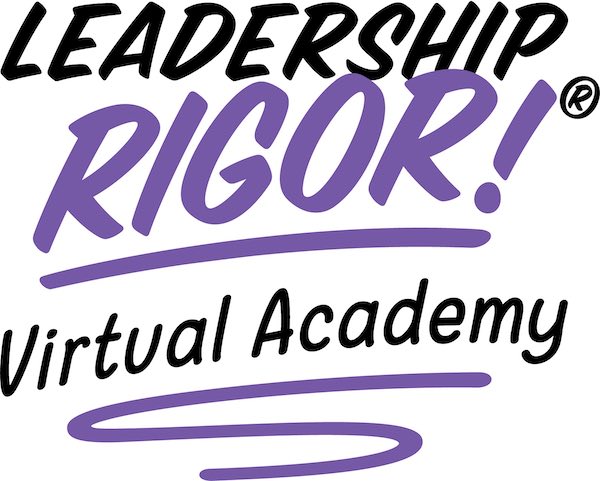Put on probation at work? What’s next?
September 30, 2015Becoming a Leader and Addressing Barriers: ISM Women & Leadership Conference Coverage Part 1
October 21, 2015Are you, or someone you supervise, an aspiring leader currently in an individual contributor role looking to be promoted into Team Leader role? While it is a great goal and aspiration to have, and one that many people naturally strive for or are encouraged to pursue, it is not always clear with respect to what exactly it takes to secure this role and what is required for achieving success once you are in it!
What it takes to become a Team Leader Today
While each organization has its own criteria for promoting its talent, some common elements aspiring leaders can focus on to increase their probability for advancement includes the following:
1. Be Performance Minded: It’s Not Only About Results!
Historically, those promoted into team leader roles were often the best individual contributors in terms of delivering results. The sales representative with the largest book of business, the marketing professional who grew share the most or the operations specialist who improved cost of goods. All great achievements in the results column no doubt, but today organizational leaders understand that “what” you achieve is only half the story. The “how” you achieve your goals are equally important and perhaps more important in terms of your candidacy for a team leadership role. Your ability to demonstrate the “behaviors” that will inspire cross functional collaboration, open & transparent communication as well as building trusted relationships where productive conflict can yield creative and breakthrough ideas in a “carefrontational” way are just some of the criteria you will be evaluated on.
2. Be Clear On Your Passion and Desire To Grow Talent
Being an individual contributor requires a keen focus on the “work product” and being an effective team member. Advancing into a team leader role, however, requires an individual to have a genuine interest and desire to invest in the development of others. Team Leaders have (3) roles, the first is getting the work done through others, a challenge requiring a change in altitude (i.e. from doing to managing), the second is developing the individuals on the team and the third is developing the team as “an entity.” Fully 2/3 of the Team Leader role is “development” not just delivery of a work product. If this is not your heart felt orientation, you will be continuously challenged with “spending time” with your direct reports and occasionally, if not often, being resentful of the “perceived distraction” your direct reports will cause you from accomplishing your own work or responsibilities. The best team leaders understand that their role is to invest in the development of others and do so with an open heart and a willing mindset.
3. Be a Facilitator of Progress
Those who are ready to play Team leader roles have a clear fundamental perspective that all work is cross-functional and collaborative. They recognize that work requires sincere cooperation and they understand that they need to ensure that work at “the interfaces” runs smoothly as this is where most challenges and obstacles arise. It is here that they facilitate progress by coaching the team members and perhaps even their peers for process solutions that enable the entire enterprise to work more productively rather than just their own team or direct reports.
How to Achieve Success As A Team Leader: Be both Practitioner & Philosopher
Getting the big promotion and a chance to play the Team Leader role is the first step. When you are finally there, however, what are the key steps to ensure your success? You must actively be BOTH a practitioner and a philosopher.
As a Practitioner…
Your technical expertise has been well established as an individual contributor and therefore you are well positioned as a Team Leader to accelerate the professional skill sets of your direct reports. You have also likely demonstrated your understanding of the behavioral expectations of your organizations values and are looked towards as a role model who lives the leadership behaviors your enterprise considers paramount for their success.
Whether you are directing a new employee or coaching the skills of an experienced team member, you are a knowledgeable “go to resource” who has done the work and can provide instruction and insight to your team for their performance (both results and behaviors).
The challenge for you here, as a developing Team Leader, is to increasingly let go of your “hands on” practitioner approach and ensure you are moving through the continuum of directing to coaching to empowering and ultimately delegating increasing professional and technical responsibility to your talent bench.
As a Philosopher…
Beyond your practical on the ground (OTG) experience, you also must learn to play the role of a philosopher who seeks to develop the spirit and confidence of your organization and team members which is equally important.
Team leaders are champions for their organizational culture which is commonly referred to as “how we do things around here.” These behavioral beliefs, values and expectations are deeply rooted in who your enterprise has been over its history, who it is now and who it is becoming. Framing this context and evolving narrative while helping your team members to fully engage and integrate themselves into the core of your organization is a big part of your role and ultimately their success.
As a philosopher, you also have the opportunity to look into your own heart and the hearts of your team members, empathize as you see their desires and dreams while offering them the space and encouragement to fully realize their potential to become who they can and want to be in your organization. Posing powerful and reflective questions, providing feedback on how they are showing up as well as their “intention and impact” and creating a safe space for their growth offers you the unique opportunity to coach for performance in an intimate way that can powerfully develop the leader within.
It is because of this access to nurture and grow your talent that you need to be both a conscious philosopher who develops the leadership bench and a disciplined practitioner who cultivates technical expertise as a team leader. Both roles are critical to achieving success in this important interface role between the up and coming talent and the senior rankings of your organization.
[Tweet “How to Achieve Success As A Team Leader: Be both Practitioner & Philosopher”]









